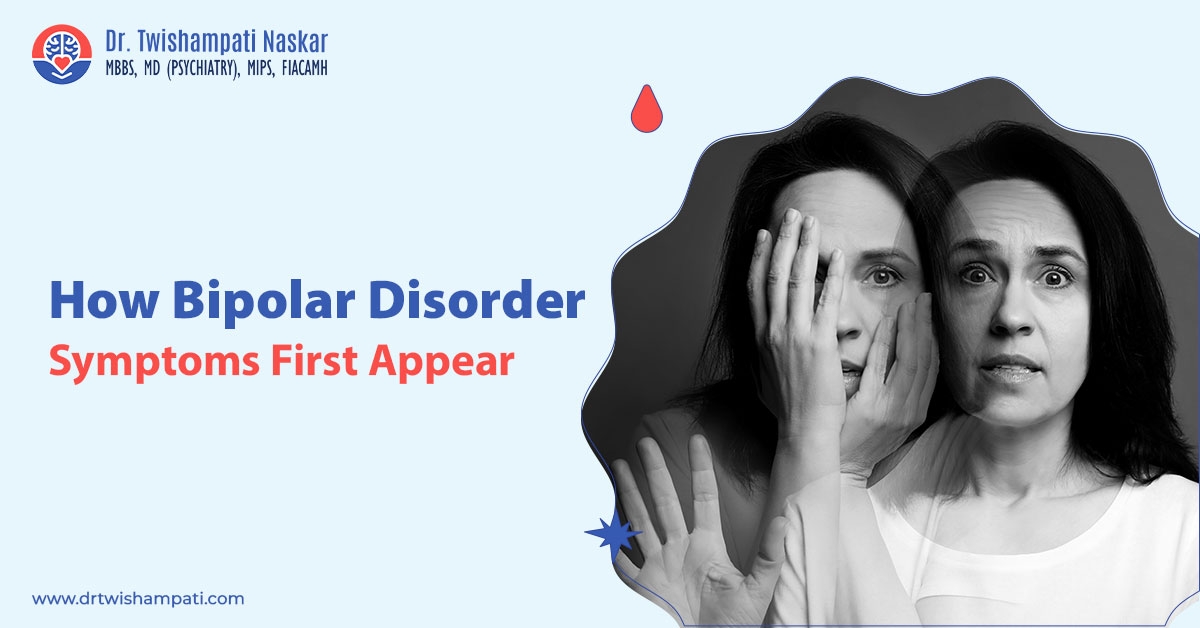Bipolar disorder isn’t just about mood swings, it’s a complex condition that can affect energy, thoughts, and daily life. Many people wonder why it happens and if it runs in families. The truth is, genetics plays a big role in shaping who might develop it. Understanding how your genes influence mental health can help you manage it better. If you’re looking for clarity or support, consulting an experienced psychiatrist in Siliguri can be the first step toward finding balance and peace of mind.
If you’re looking for clear guidance or need help understanding this condition, consulting an experienced psychiatrist in Siliguri can make a big difference in getting the right support and treatment.
What Bipolar Disorder Really Means?
Bipolar disorder is a mental health condition that brings extreme mood swings, from feeling overly energetic or excited (known as mania) to feeling very low or hopeless (depression).
During the high phase, a person might talk a lot, sleep very little, and take quick or risky decisions. Then comes the low phase, when they may feel drained, unmotivated, and sad for days or even weeks.
These ups and downs don’t just affect emotions, they can impact sleep, focus, relationships, and daily life. Unlike normal mood changes, the shifts in bipolar disorder are stronger and last much longer.
How Much Do Genes Influence Bipolar Disorder?
Genes are like the body’s instruction manual. They decide everything from your eye color to how your brain functions. And while no single gene “causes” bipolar disorder, scientists believe that a combination of genetic variations increases the risk.
- If one of your parents or siblings has bipolar disorder, your chances of developing it are higher compared to someone without a family history. For example, studies show:
- If one parent has bipolar disorder, there’s about a 10% to 15% chance their child may also develop it.
- If both parents have it, the risk can go up to 40% to 60%.
- Even identical twins, who share the same genes, don’t always both develop the condition, proving that genetics is a major factor but not the only one.
So while genes can make you more vulnerable, environmental triggers and life experiences play a big part too.
Does Bipolar Disorder Run in Families?
Have you ever noticed how certain traits, like habits, looks, or even emotions, seem to run in families? The same can sometimes happen with mental health. Conditions like bipolar disorder can appear across generations, showing that family history plays a big role.
That’s why doctors often ask about your family’s mental health. If a parent, sibling, or even grandparent has had similar mood changes, it helps the psychiatrist understand your situation better and choose the right treatment.
But remember, having someone in your family with bipolar disorder doesn’t mean you’ll definitely have it too. It simply means your brain might react more strongly to stress, lack of sleep, or big life changes, making emotional ups and downs more likely.
Genes Aren’t Everything: The Environment also Matters
While genes can load the gun, it’s life events that often pull the trigger. Things like chronic stress, trauma, lack of sleep, or substance use can activate those genetic vulnerabilities.
For example, someone with a genetic risk might live a completely stable life with no symptoms until something stressful happens, like a major life change or prolonged emotional strain. That’s when bipolar episodes may begin.
This combination of genes and environment is what scientists call the “biopsychosocial model.” It means that biology, psychology, and social factors all come together to influence mental health.
So if you have a family history of bipolar disorder, it’s not about fear, it’s about awareness. By understanding your triggers and maintaining a balanced lifestyle, you can reduce your risk of episodes and lead a stable, fulfilling life.
What Science Tells Us About the Genes Behind Bipolar Disorder?
Researchers have discovered that certain genes can influence how our brain handles mood and energy. These genes affect the brain’s chemical messengers, called neurotransmitters, which help regulate emotions and thinking.
Some key chemicals include:
- Dopamine affects feelings of pleasure and reward.
- Serotonin, which helps keep moods steady.
- Glutamate, which helps brain cells communicate and manage energy.
When these systems get out of balance, mood swings can become stronger or harder to manage. Scientists are still learning about these genes, hoping to create treatments that are even more personalized in the future.
How You Can Take Charge of Your Mental Health?
Knowing that bipolar disorder can run in your family isn’t meant to scare you — it’s about giving you the chance to take control. Being aware of your genetic risk allows you to take small but powerful steps to protect your mental well-being.
Here’s what can help:
- Keep track of your moods to notice patterns early.
- Prioritize sleep, since too little rest can trigger mood swings.
- Manage stress with simple practices like mindfulness, yoga, or talking to someone you trust.
- Avoid alcohol and drugs, which can make mood changes worse.
- Reach out to a professional if you notice consistent mood changes.
The sooner you act, the better your chances of staying balanced and living a healthy, stable life.
Diagnosis and Treatment: What to Expect
If you suspect you or a loved one may have bipolar disorder, it’s important to get a proper evaluation. A psychiatrist will usually:
1. Ask about your family history and mood changes.
2 Rule out other causes, such as thyroid issues or medication effects.
3. Recommend therapy or medication, depending on the type and severity of symptoms.
Treatment often includes a mix of mood stabilizers, psychotherapy, and lifestyle adjustments. Regular follow-ups are crucial since bipolar disorder is a lifelong condition that requires ongoing care.
The goal isn’t just to control symptoms but to help you live a balanced, fulfilling life, one where you can recognize your triggers, stay stable, and feel in control again.
Genes and Your Brain: How They Work Together
Bipolar disorder doesn’t define who you are; it’s just one part of your life. Many people with the condition live full, creative, and meaningful lives. Some even find that their unique way of thinking brings new ideas and perspectives.
The important thing is learning to manage your moods, accept the condition, and surround yourself with supportive family, friends, and professionals who understand you. With the right care and routines, it’s possible to stay stable, follow your dreams, and enjoy strong, healthy relationships.
Conclusion
Bipolar disorder can be challenging, but understanding that genetics plays a role helps us approach it with empathy rather than blame. It’s not about weakness; it’s about biology, life experiences, and learning to find balance. With the right support, people can manage their moods, pursue their passions, and enjoy meaningful relationships.
If you or someone you love notices frequent mood swings, unusual highs, or prolonged lows, don’t ignore the signs. Early support and professional guidance can make a huge difference in living a stable and fulfilling life. Remember, small steps toward care can create lasting positive change. For guidance, you can reach out to Dr. Twishampati Naskar, a psychiatrist in Siliguri, who can help you understand your condition and find stability.
Comments (0)





